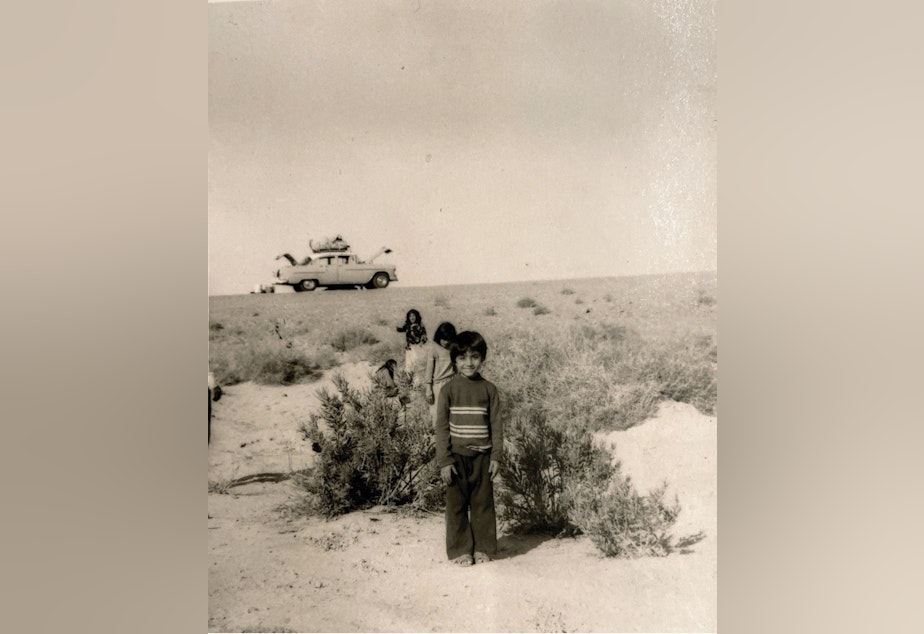'Staying in Iran was not a choice, it was just a surrender.' Mahvash Khajavi-Harvey on her refugee experience.

A local author recounts her story of war, persecution, and hope. We discuss The Whitmans as former heroes and the politics of memory. And a UW professor helps Homeland Security identify some ancient coins.
Daylight Forever, a memoir
As a young Baha'i girl in Iran, Mahvash Khajavi-Harvey was subjected to war, displacement, and persecution. When bombs came down at night she prayed for a spaceship to escape and bring her to daylight. Bill Radke spoke with Mahvash Khajavi-Harvey, about growing up as a Baha’i in Tehran during the Islamic Revolution and the Iraq-Iran War.
The Whitmans and the politics of memory
Marcus and Narcissa Whitman were heralded as heroes after they were killed in 1847. That's not so much the case anymore. How should we remember the Whitmans today? Bill Radke spoke with Cassandra Tate about her new book Unsettled Ground: The Whitman Massacre and Its Shifting Legacy in the American West.
Ancient coins go to Washington
Fifty one Greek Hellenistic and early Islamic empire coins were seized by boarder patrol agents in Blaine. Homeland Security contacted a University of Washington professor to help identity them. Why are they going to the UW? Bill Radke spoke to Professor Sarah Stroup of Ancient Greek and Roman studies at the University of Washington, about helping homeland security with an ancient coins case.

